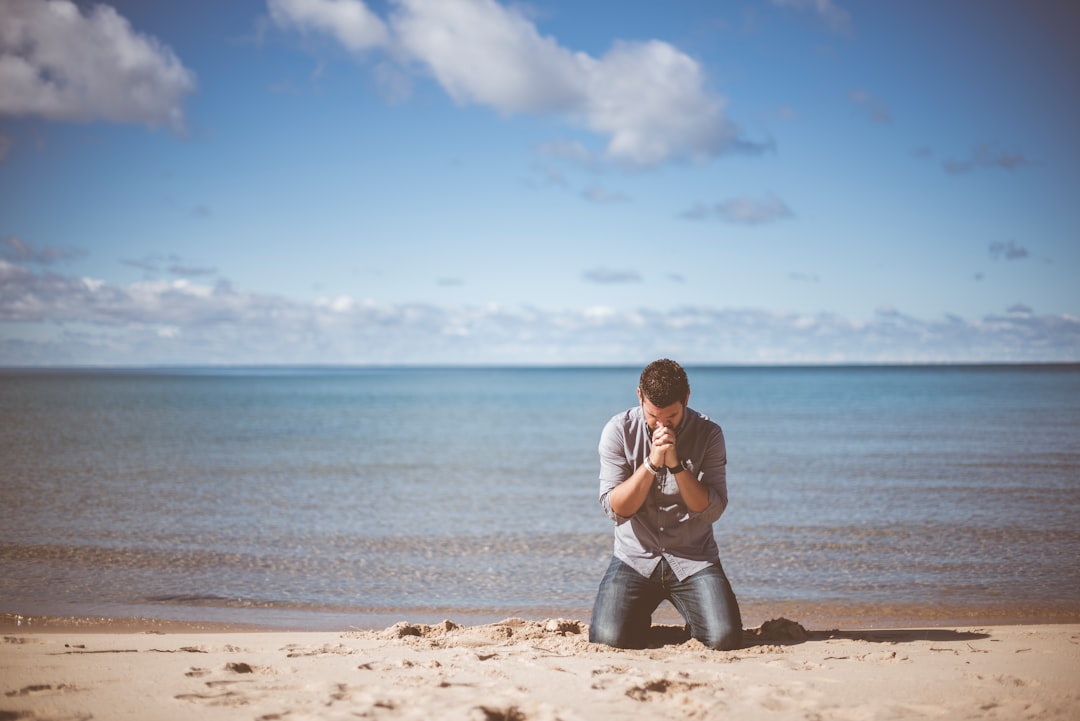1 Peter 5 Part 2 - Young people, be subject to Elders
1 Peter 5:5 - God gives grace to the humble. Our culture despises humility.
“You younger men, likewise, be subject to your elders; and all of you, clothe yourselves with humility toward one another, for God is opposed to the proud, but gives grace to the humble.”
1 Peter 5:5 NASB1995
Peter now exhorts the younger men in the church (other translations use people) to be subject to their elders and tells all of them to clothe themselves in humility toward one another. God is opposed to the proud, but gives grace to the humble.
So what does it mean to be humble? The word humble in this context comes from the Greek word ταπεινός or tapeinos. It has the following Biblical usages:
as a condition, lowly, of low degree
brought low with grief, depressed
lowly in spirit, humble
Here are more thoughts on humility, from Gotquestions.org; links go to Biblia.com.
The Bible describes humility as meekness, lowliness, and absence of self. The Greek word translated “humility” in Colossians 3:12 and elsewhere literally means “lowliness of mind,” so we see that humility is a heart attitude, not merely an outward demeanor. One may put on an outward show of humility but still have a heart full of pride and arrogance. Jesus said that those who are “poor in spirit” would have the kingdom of heaven (Matthew 5:3). Being poor in spirit means that only those who admit to an absolute bankruptcy of spiritual worth will inherit eternal life. Therefore, humility is a prerequisite for the Christian.
When we come to Christ as sinners, we must come in humility. We acknowledge that we are paupers and beggars who come with nothing to offer Him but our sin and our need for salvation. We recognize our lack of merit and our complete inability to save ourselves. Then when He offers the grace and mercy of God, we accept it in humble gratitude and commit our lives to Him and to others. We “die to self” so that we can live as new creations in Christ (2 Corinthians 5:17). We never forget that He has exchanged our worthlessness for His infinite worth, and our sin for His righteousness. The life we now live, we live by faith in the Son of God who loved us and gave Himself for us (Galatians 2:20). That is true humility.
So, do our readers think that humility is a virtue in our modern culture? I think we can guess the answer. I know that I have struggled with humility in my past and I used to battle the two demons of an overweening ego thinking I was super smart, coupled with a perfectionism that told me that I never did anything quite right (perhaps I was really fishing for compliments). We all have seen that humility is a rare thing in our society, which makes it quite appealing when a humble attitude appears to be genuine in a sports figure or celebrity or a politician (good luck finding one of those last ones).
In researching the virtue of humility, for some reason I thought about our selfie-obsessed culture and found some shocking statistics, according to Infogram.com:
The 18-24 year age group takes approximately 1 million selfies a DAY collectively (some in this age category confess to taking at least 8 selfies a day individually).
There are over 58 million photographs on Instagram with the tag “selfie”.
38% of the population of Australia, USA and Canada has taken a selfie (those are the three highest nations for selfies).
Even worse, I found an article in the tabloid The Sun (US Edition) from 2021 that documented 330 deaths worldwide in a single year from selfies gone bad; many of these unfortunate incidents occur when someone wants that ultimate selfie on a cliff or in a moving vehicle or near a wild animal or on the edge of a building. Other research shows that the annual numbers of accidents and deaths are growing since built-in cameras became available in phones. Being frequent travelers to National Parks, we have seen people go outside safety barriers to get a selfie near a waterfall or 1000-foot cliff or carelessly approach wild animals like bison with their phones in hand or hand the camera to a friend while they approach an edge. A word of warning to many of these folks about the danger is usually met with swearing or the middle finger (time to get the ranger).

I’m obviously not saying that we shouldn’t take photos of ourselves to document happy times or to remember events. In fact, Steve and I have taken quite a few photos of ourselves over the years or handed the camera to someone to take our picture (I usually don’t like my photo taken, but will consent on occasion). We have also taken pictures of a nice-looking meal and posted them, which is rather self-serving (no pun intended). But taking pictures of yourself to the exclusion of every other type of photo that you might take (scenery, for example) is probably a good measure of a lack of personal humility and perhaps an indicator of a psychological disorder like narcissism. You might also say the same thing about a “blue check” celebrity who lives for the hundreds of likes and shares when they spout their insipid opinion about something on social media.
According to Wikipedia, narcissism is defined as follows, with two types characterized:
Narcissism is a self-centered personality style characterized as having an excessive preoccupation with oneself and one's own needs, often at the expense of others.
Grandiose Narcissism
Narcissistic grandiosity is thought to arise from a combination of the antagonistic core with temperamental boldness—defined by positive emotionality, social dominance, reward-seeking and risk-taking. Grandiosity is defined—in addition to antagonism—by a confident, exhibitionistic and manipulative self-regulatory style.
High self-esteem and a clear sense of uniqueness and superiority, with fantasies of success and power, and lofty ambitions
Social potency, marked by exhibitionistic, authoritative, charismatic and self-promoting interpersonal behaviors
Exploitative, self-serving relational dynamics; short-term relationship transactions defined by manipulation and privileging of personal gain over other benefits of socialization.
Vulnerable Narcissism
Narcissistic vulnerability is thought to arise from a combination of the antagonistic core with temperamental reactivity—defined by negative emotionality, social avoidance, passivity and marked proneness to rage. Vulnerability is defined—in addition to antagonism—by a shy, vindictive and needy self-regulatory style.
Low and contingent self-esteem, unstable and unclear sense of self, and resentment of others' success
Social withdrawal, resulting from shame, distrust of others' intentions, and concerns over being accepted
Needy, obsessive relational dynamics; long-term relationship transactions defined by an excessive need for admiration, approval and support, and vengefulness when needs are unmet
I’m not a psychologist, but I would say with assurance that our “me, me, me” culture is running rampant with both types of narcissism, which could explain all of the egos, the risky behaviors, the rage on social media and cultural trajectories like gender dysphoria. Psychologists in 2023 would also likely view faith in God as aberrant behavior. I was diagnosed (not by a specialist, but by a counselor at work) with low self-esteem at one point in my career life and was advised to take a “self-esteem” class. Looking back at what I learned in that class, especially through the lens of faith, “self-esteem” training could rightly be called a tool of the enemy to destroy everything but self (God included) and work to create an unseemly pride that is truly draining. I hated the class and discarded most of what I was taught within hours or days. I somehow survived and am earnestly working on true humility now with the help of the Holy Spirit.
We are to die to self to live for Christ! To finish this devotional, here are some superb comments from Enduring Word about the last part of this verse:
For “God resists the proud, but gives grace to the humble”: Peter quoted Proverbs 3:34 to show that humility is essential to our relationship with God. If we want to live in God’s grace (His unmerited favor) then we must lay aside our pride and be humble – not only to Him but also to one another.
Resists: “The verb vividly pictures God as one who places Himself in battle array against such individuals.” (D. Edmond Hiebert)
Grace and pride are eternal enemies. Pride demands that God bless me in light of what I think I deserve. Grace deals with me on the basis what is in God, not on the basis of anything in me.
“Pride is one of the most detestable of sins; yet does it find lodgment in earnest souls, though we often speak of it by some lighter name. We call it – independence, self-reliance. We do not always discern it in the hurt feeling, which retires into itself, and nurses its sorrows in a sulk… We are proud of our humility, vain of our meekness; and, putting on the saintliest look, we wonder whether all around are not admiring us for our lowliness.” (F.B. Meyer)
“If you are willing to be nothing God will make something of you. The way to the top of the ladder is to begin at the lowest round. In fact in the church of God, the way up is to go down; but he that is ambitious to be at the top will find himself before long at the bottom.” (Charles Spurgeon)
My next devotional examines 1 Peter 5:6-7 - Cast your cares to God
Heaven on Wheels Daily Prayer:
Dear Lord - I humbly beseech you to aid me in dying to self, to truly be a recipient of your grace to me, a miserable sinner. May I be truly humble before you and before others. Amen.
Scripture quotations taken from the (NASB®) New American Standard Bible®, Copyright © 1960, 1971, 1977, 1995 by The Lockman Foundation. Used by permission. All rights reserved. lockman.org
Commentary from Enduring Word is used with written permission.



